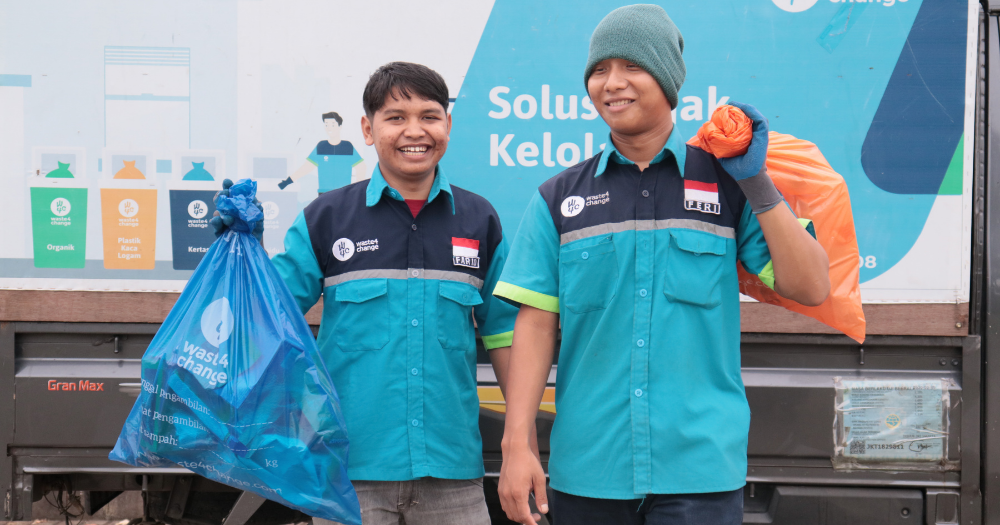Jakarta, the capital of Indonesia, previously issued a ban on single-use plastic bags in June 2020, with all of such bags swept out of traditional markets, modern supermarkets and minimarkets.
The regulation stipulated that shopkeepers and stallholders are required to provide environmentally-friendly carrier bags.
Additionally, penalties such as fines and written warnings would be imposed for businesses that did not adhere to the new regulation.
Despite these big strides forward, the country still seems to be struggling with its massive waste problem.
According to the World Bank, Indonesia generates around 7.8 million tons of plastic waste annually, and 4.9 million tons of this is mismanaged — which means the plastic waste is uncollected or disposed of improperly at open dumpsites or landfills.
If these figures are for plastic waste only, imagine the magnitude of the problem when it comes to Indonesia's general waste management.
As Rofi Alhanif, the assistant deputy for waste management under Indonesia's Ministry of Maritime Affairs and Investment described to the Jakarta Globe, the country's "biggest challenge" is "how can we sort our waste".
This is where local start-up Waste4Change is helping to pick up the slack.
Turns anger into motivation to create change
Waste4Change was founded in 2014 by Mohamad Bijaksana Junerosano, also known as Sano, who graduated with a degree in environmental engineering.
He is the CEO of social enterprise Greeneration Indonesia (GI), which encourages people to adopt eco-friendly lifestyles. Waste4Change is a business unit under GI.
Elaborating on his motivation to starting Waste4Change, Sano said that he was very angry over the "never-ending" waste problem in Indonesia and so he decided to divert his anger to something positive.
Four core services
Waste4Change offers four core services:
- Collecting waste through segregated waste drives
- Creating recycled material by processing the collected waste
- Consulting with businesses to help them reduce the waste they generate
- Campaigning with schools and residents to raise awareness of waste management
Speaking to Mothership, Waste4Change's Head of Communication and Engagement Hana Nur Auliana shares that the company tries to tackle the waste issue at its source — this means educating Indonesians to segregate their waste into the appropriate waste streams.
The waste can be separated into recyclables, organic waste and residuals (waste that cannot be composted or recycled).
These are collected from residential areas or commercial entities such as malls, hotels and retail stores.
Recyclables are transported to Waste4Change's material recovery facilities, while organic waste is broken down by its army of black soldier flies.
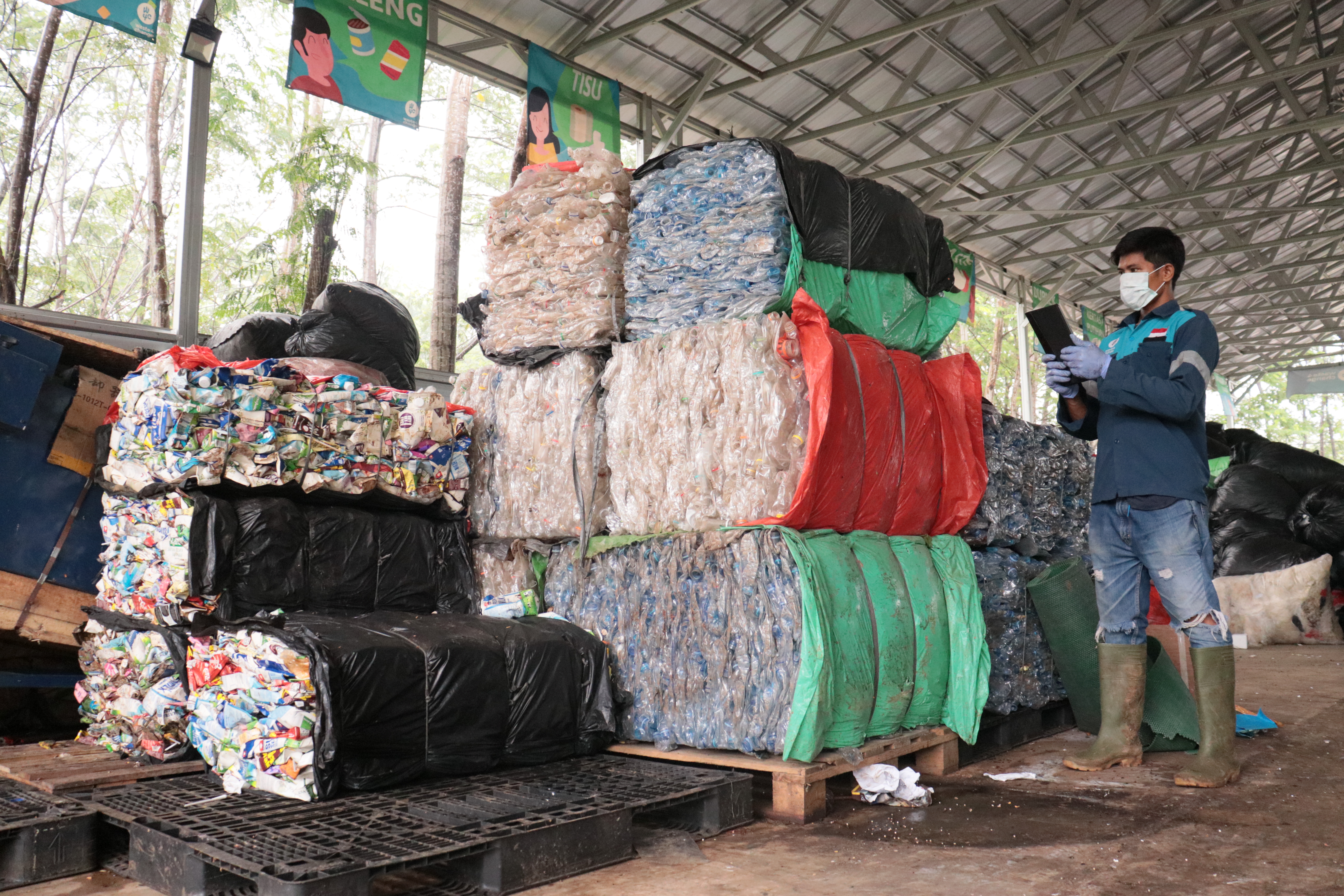 Photo from Waste4Change
Photo from Waste4Change
Here's an example of how black soldier flies work, as utilised by one Singapore start-up that tackles food waste.
Meanwhile, residual waste will either be converted into energy or be sent to the landfills.
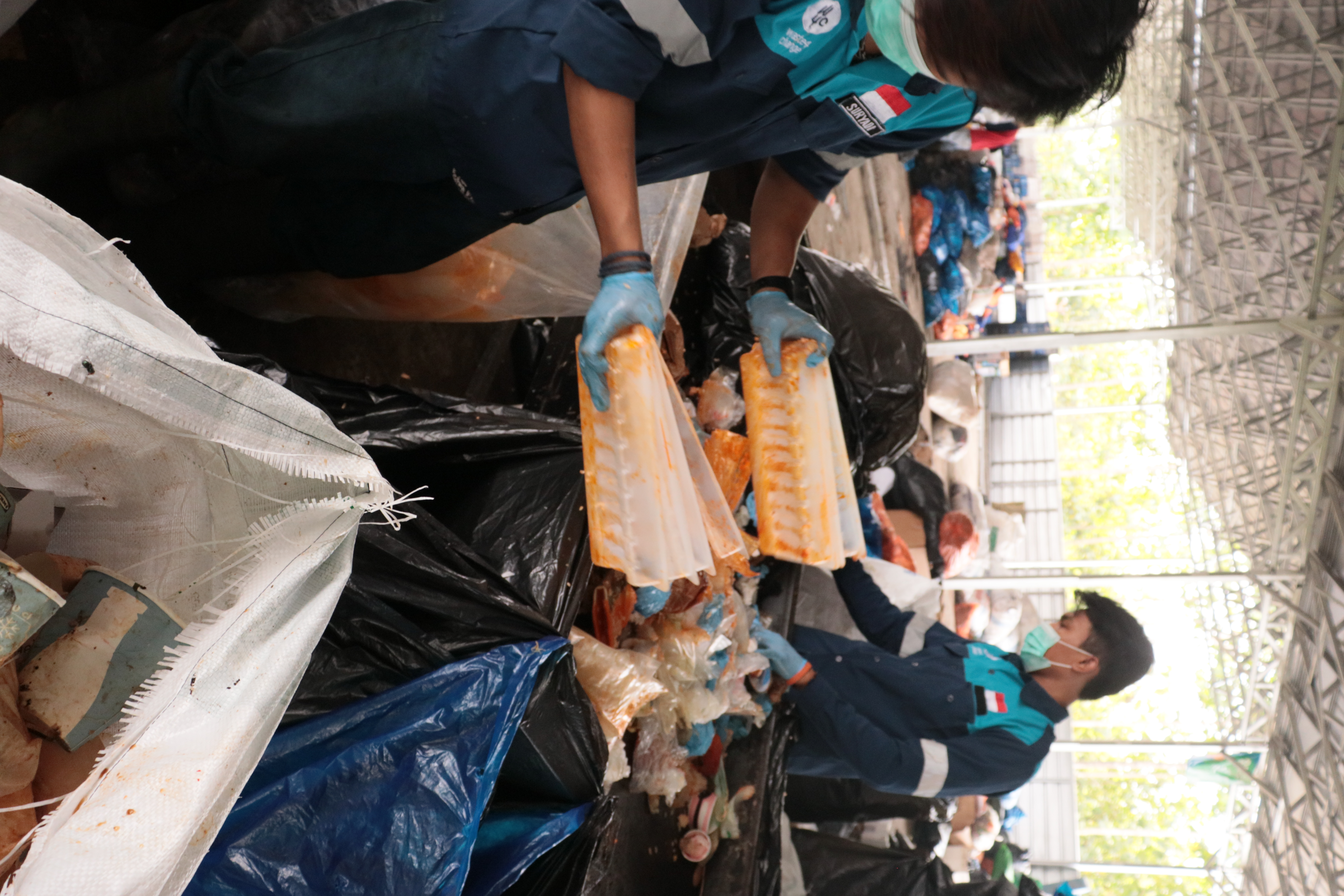 Photo from Waste4Change
Photo from Waste4Change
Setting itself apart
What sets Waste4Change apart from other waste management companies though is the all encompassing services it offers.
More and more start-ups focusing on waste management are popping up, Hana says, but these usually only process recyclables as it is "easier".
"We are not only collecting or not only managing the recyclables, but also [managing] any other domestic waste. [Additionally] we have the consulting and the campaign [aspects] also".
When working with businesses, Waste4Change also takes it one step further by offering clients tiered packages.
For a higher price, clients receive a detailed report of the composition of waste they have generated.
Incentivising people to manage their waste
Singapore might have all its waste sequestered neatly on Pulau Semakau, but for Indonesia, landfills and illegal dumping sites are aplenty.
With a population of around 274 million people, Hana said that Waste4Change definitely has its work cut out for the country.
Recycling in the country is also in its infant stages, despite the government's efforts to ban plastic.
Although regulations are implemented by a central government, these barely trickle down to local governments and are hard to impose in small provinces, especially with the lack of enforcement.
"It's still 'free' to throw waste anywhere," Hana says of the lack of consequences people face and the convenience of dumping their waste.
Waste4Change combats this by creating "Waste Banks".
Waste Banks allow residents to exchange their domestic waste for financial rewards and incentives, helping to both raise awareness and incentivise people to dispose of their waste properly.
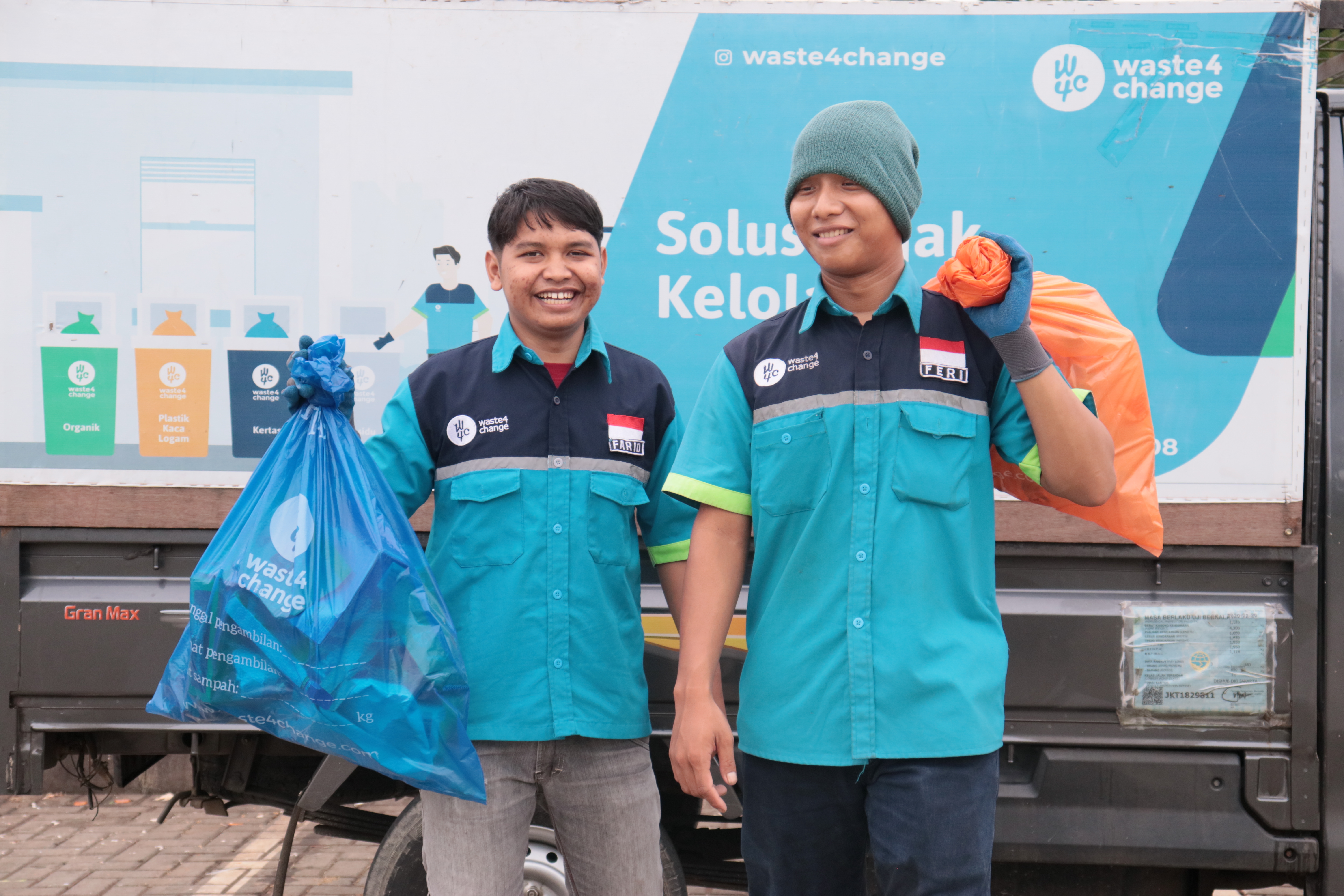 Photo from Waste4Change
Photo from Waste4Change
Support from DBS
Waste4Change has been supported by DBS since its inception, and was an awardee of the DBS Foundation Social Enterprise Grant last year.
In 2018, Waste4Change collaborated with Bank DBS Indonesia as a waste management vendor, and till now, the waste produced by DBS's offices in Indonesia are managed by Waste4Change.
Thus far, Waste4Change has worked with 253 clients and managed 8.8 million kilograms of waste.
Ultimately, it aims to achieve a 30 per cent waste reduction at source and 70 per cent waste recovery by 2025.
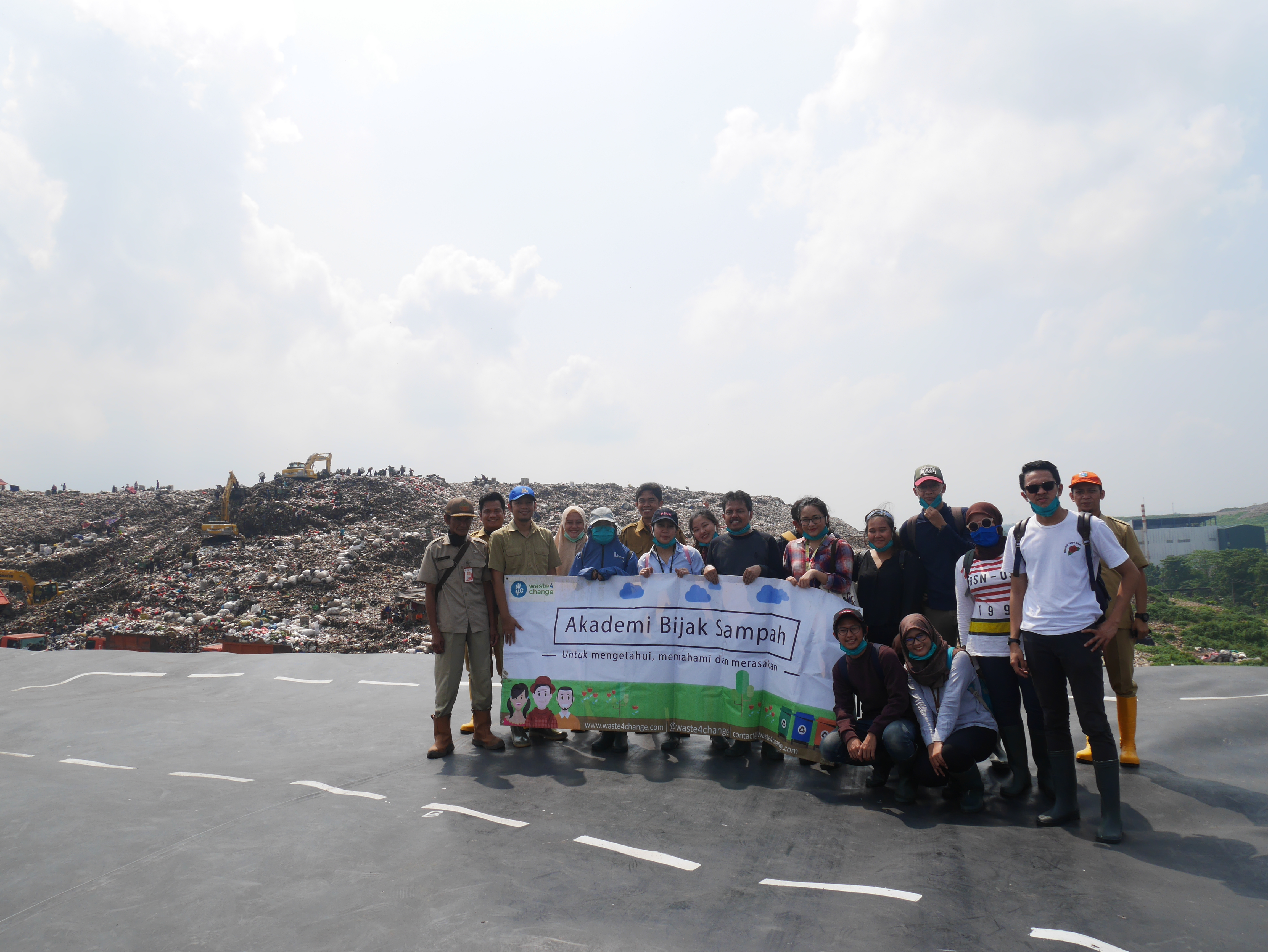 Photo from Waste4Change
Photo from Waste4Change
This article was made possible with the support of DBS Bank.
The 2022 DBS Foundation Social Enterprise Grant Programme is open for applications. Innovative social enterprises with solutions tackling the areas of social/environmental impact or “Zero Food Waste” are welcome to apply from now till May 31, 2022, 2359h.
Discover more about the DBS Foundation Social Enterprise Grant here.
Top photo from Waste4Change
If you like what you read, follow us on Facebook, Instagram, Twitter and Telegram to get the latest updates.
